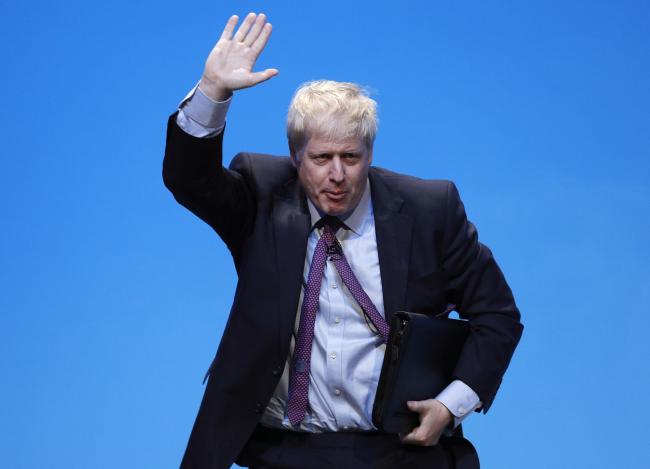(Bloomberg) -- Boris Johnson’s Brexit strategy rests, he says, on the idea that the U.K. Parliament is now ready to back a no-deal Brexit.
The favorite to succeed Theresa May as prime minister said this week that the drubbings that both his Conservative Party and the opposition Labour Party received in the European elections had left members of Parliament determined to get Brexit done.
“I think Parliament now understands that the British people want us to come out,” Johnson told the BBC on Monday. “And I think that MPs on both sides of the House also understand that they will face mortal retribution from the electorate unless we get on and do it.”
Parliament has no specific power to stop a no-deal departure. Instead it has moral authority, and MPs have managed to maneuver in the past to force the government to change its negotiating stance. It’s possible a prime minister could sideline or ignore Parliament.
But Johnson’s claim is that he wouldn’t need to. Is that realistic? We’ve done the arithmetic, and while it might be closer than you think, there’s nothing like a majority for no-deal.
Target (NYSE:TGT): 318
There are 650 MPs, but 11 of them don’t vote, which means Johnson needs 320 for a majority. Two MPs on each side of every vote do the counting, so aren’t included in the tallies. Johnson needs to get to 318 to be sure of winning a vote.
Last time: 164
Parliament has voted already this year on the idea of a no-deal Brexit, and rejected it resoundingly every time. Each vote was on slightly different flavors of no-deal, but no version got more than 164 votes.
Could a prime minister determined to pursue no-deal do better? Here’s the count:
Democratic Unionists: 10
The DUP are willing to back a no-deal Brexit, and have voted for it as a bloc before. Gavin Williamson, who served Theresa May as a go-between with the DUP, is on Johnson’s team, and was last week seen having coffee in Parliament with Nigel Dodds, the DUP’s Westminster leader.
Labour: 4
Just four Labour MPs voted for a no-deal Brexit in March. Johnson’s argument is that the EU elections have changed Labour views. There’s some evidence of that: Labour’s Gareth Snell said earlier this month that he regretted voting against May’s Brexit deal, and said he’d vote for a deal now if he got the chance.
But Snell went on specifically to reject no-deal. There are 30 Labour MPs who have made pro-Brexit noises in recent months, but only 10 of them have been willing to vote that way. Others have specifically cited the fear of a Johnson administration pursuing a harder Brexit as a reason not to vote with the Tory government.
Conservatives: 290 (at a push)
There are 312 Conservative MPs. About 150 of them have been willing to vote for no-deal if given the choice, but what if they were instructed to? The closest parallel to that was a vote in March where more than 20 Tories, including Cabinet ministers, voted against no-deal. But that probably understates it. More than 30 Tories have either voted against a hard Brexit or indicated that they are prepared to.
Total: 304
Could anything change this? Some more Tories could probably be won over with a promise of a big job, but Johnson is also going to face the problem that, if he become prime minister, a lot of senior figures such as Chancellor of the Exchequer Philip Hammond will head to the backbenches with the intention of fighting against no-deal. And Johnson will have nothing to offer.
